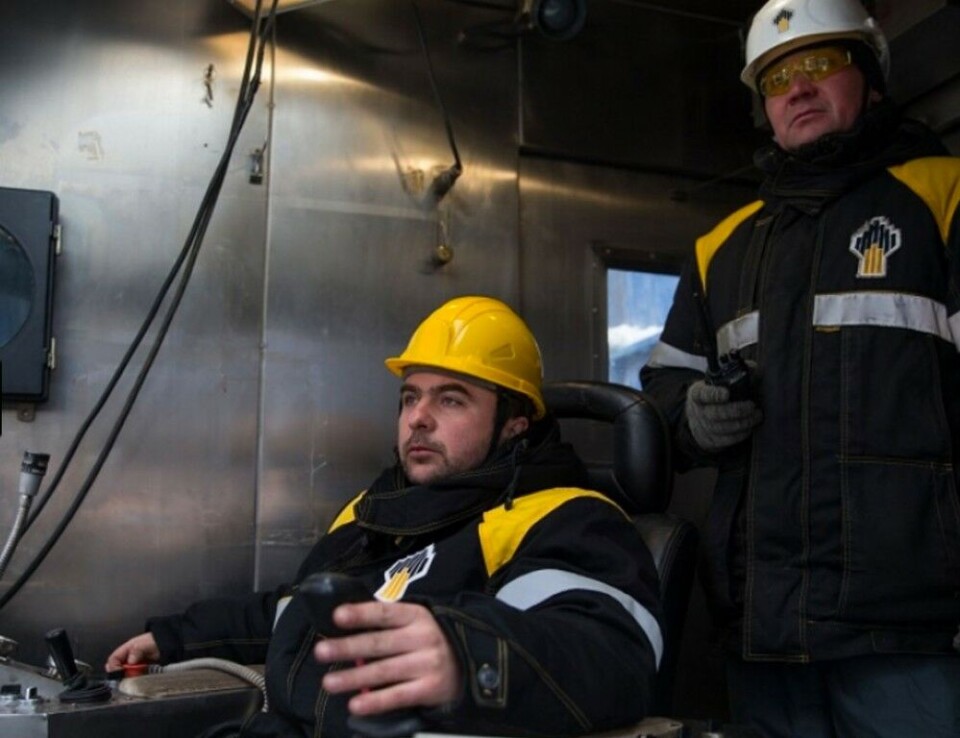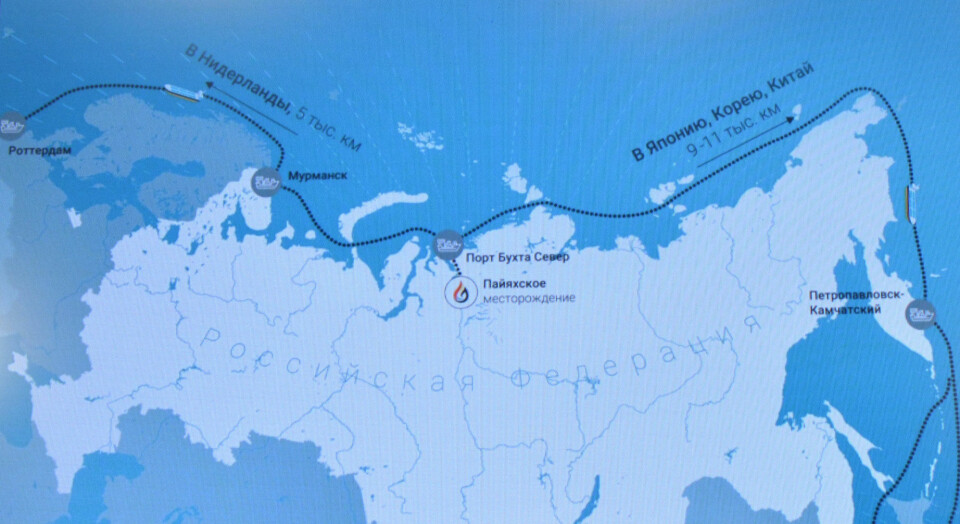
Singaporean trader Trafigura teams up with Rosneft in extreme Arctic oil project
The trading company buys a 10 percent stake in Vostok Oil, the Russian project that in five years is to deliver 30 million tons of oil from the most desolate Arctic coast.
Nothing of the kind has ever been seen this far north. In only few years, the Vostok Oil developers intend to drill a massive number of wells and build the infrastructure needed for the production and exports of up to 100 million tons of oil per year.

Already by 2025, up to 30 million tons is to be produced and delivered across the Northern Sea Route.
On the 16th November, Rosneft’s Board of Directors approved the inclusion in the project the first major partner. Singapore-based Trafigura acquires a ten percent stake in the company, Rosneft informs. The price for the acquisition is not disclosed, but a market analyst says to newspaper RBC that it is probably “no less than $7 billion”.
The oil trader is a long-time partner of the Russian company. Since 2013, many million tons of Rosneft’s oil has been traded by Trafigura.
Talks with India, BP
The Russian company is also negotiating with several more potential partners. Among them are companies from India. That country’s Minister of Oil, Natural Gas and Steel Dharmendra Pradhan in early 2020 confirmed that Indian companies will participate in the project.
The comment was made during a visit to India by Russian Minister of Foreign Affairs Sergey Lavrov. In a comment to newspaper Times of India, Lavrov subsequently said India could become «the first non-Arctic state that engages in mineral extraction in the Arctic».
Rosneft is also believed to be in negotiations with BP.
Big Arctic impact
The Vostok Oil project will have a significant impact on nature and environment in the northern parts of the Taymyr Peninsula. According to Rosneft President Igor Sechin, the project development will include the building of 15 new industry settlement, three airports, a seaport, several thousand kilometers of new pipelines, 3500 km of new electricity lines and 2000 MW of electric power capacity.
It will require 100,000 new jobs and lead to a 2 percent annual hike in national GDP, Sechin told President Vladimir Putin in early 2020.
The powerful oil company leader has discussed the project with Putin on at least three occasions this year. In their meeting in August, Sechin gave the President a bottle of oil from the region, saying that it is “premium-quality oil, among the best in the world.”
The development of the project is reported to be well underway. An agreement with electricity grid developer Inter RAO has been signed and the latter will soon start with building the 3500 km of new electricity lines.
Rosneft has has also placed an order on the construction of ten ice-class 120,000 ton tankers at the new Zvezda Yard in Vladivostok. Another 40 ships of various classes will have to be built in connection with the project, Rosneft informs.
The Sever terminal
A key part of the Vostok Oil’s infrastructure will be the building of 2,000 km of new long distance pipelines, as well as 7,000 km of local branch pipelines, that will connect the project’s 15 oil fields with the coast of the Taymyr Peninsula.
The Sever terminal will be located on the western coast of the peninsula, not far from the town of Dikson. It will be built to handle all shipments from the project, ultimately up to 115 million tons of oil per year by 2030.
The Sever terminal is to be up running in year 2024.
Northern Sea Route
The Vostok Oil will be instrumental for Putin’s desired 80 million tons of shipments on the Northern Sea Route by 2024, a target included in the President’s so-called May Decrees from 2018.
According to Igor Sechin, the Vostok Oil has a resource potential of more than 6 billion tons of light-quality oil. Already in 2024, up to 25 million tons are to be extracted. Three years later, in 2027, production will amount to 50 million tons and in 2030 - as much as 115 million.
Resources are based on 15 fields in the Taymyr region, including wells in the Vankor area. In the estimates are also the resources of the Payakha fields, as well as the East Taymyr cluster where Rosneft cooperates with BP.
Rosneft’s production estimates for the Vostok Oil are already incorporated in federal authorities’ plans for the Northern Sea Route.

















